Along with the previously cooked ribeye steaks, our Nevada County grassfed beef order included a lovely eye of round steak. Frequently a braising cut, due to its leanness, eye of round presented an interesting challenge for me. I generally gravitate towards fatty cuts like chuck and ribeye for roasting, or quick cooking lean cuts like skirt and flank. A nearly three pound, thick piece of meat, whose only fat was on the outside, required some consideration if I was going to cook it using my favorite method: the Weber rotisserie.
My rotisserie setup offered both an advantage and disadvantage when it came to the eye of round. The advantage was that the turning would allow the fat to run along the meat as it melted, rather than dripping right off. This could help maximize the flavoring and tenderizing action of the fat. The disadvantage was that the grill tends to be a fairly dry cooking environment, which would not help the lean steak stay moist. To address the second issue, I began by puncturing the beef allover, then marinated it in a mixture of red wine and grapeseed oil—the wine to help tenderize the meat and the oil to provide some additional fat to the inside of the roast.
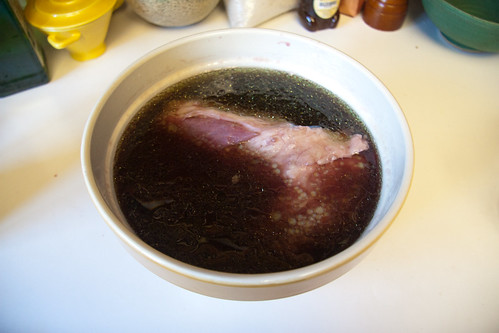
I let the meat marinate for almost three hours before starting the grill. Then I removed it from the marinade, gently patted it dry, and prepared a rub of large grained salt, crushed red pepper flakes and coffee grounds. I really enjoy the coffee grounds on beef roasts; I find they impart a wonderful earthiness and a slightly bitter flavor that is great complement to a good piece of beef.
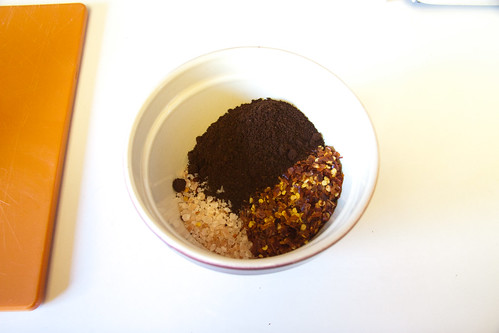
I covered the roast with a generous helping of the rub, massaging it a bit and repeatedly applying it—with a little water when needed—to get the mixture fully covering the meat.
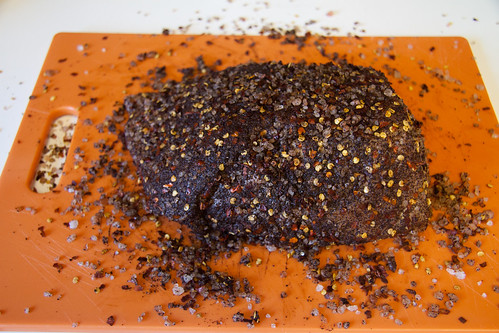
I prepared the grill with mesquite charcoal laid on either side for indirect cooking and placed a pan of water in the center to keep the air moist.
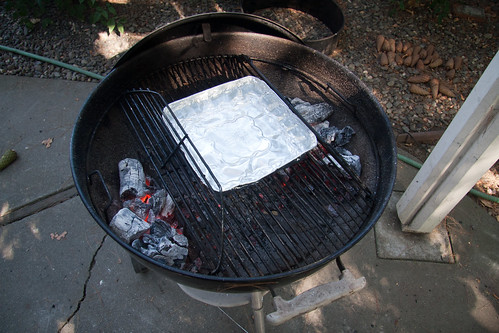
With the grill ready to go, I slid the roast onto the rotisserie skewer, secured it tightly, arranged it on the Weber and set it turning.
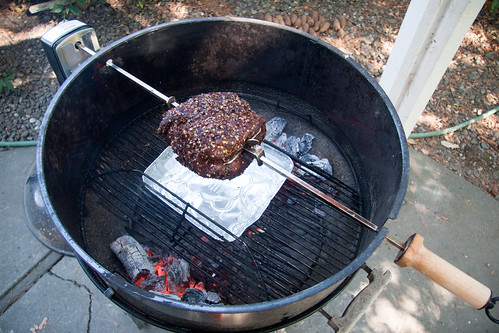
I let the eye of round cook mostly uninterrupted, other than a couple interventions to check the heat and add more charcoal. I cooked it about three hours, before removing it to rest for a few minutes.
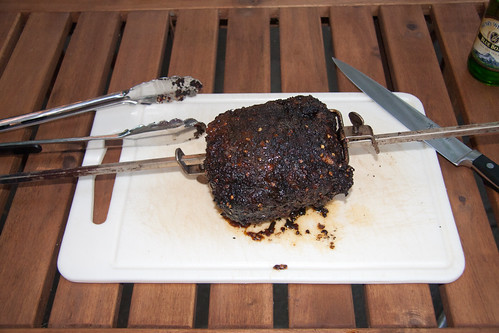
Finally, I sliced the steak as thinly as possible, revealing a medium to medium rare center, with reasonable moisture. I would liken it to a good roast beef in terms of juiciness.
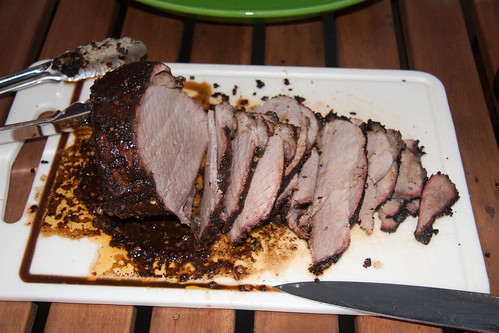
It was certainly not as tender as a well marbled cut would be, but overall it made for a very nice dinner, with the rub on the outside providing adequate seasoning to make each slice a little spicy and salty. For those who prefer lean beef, this would be a very nice way to enjoy a barbecued steak with very little fat.
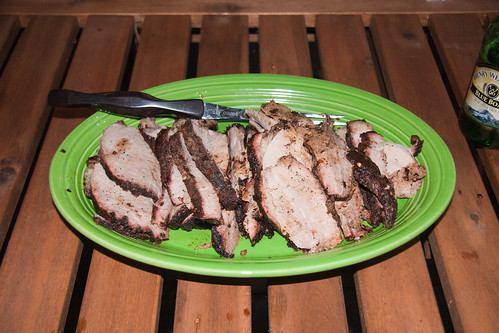
All the photos are here.
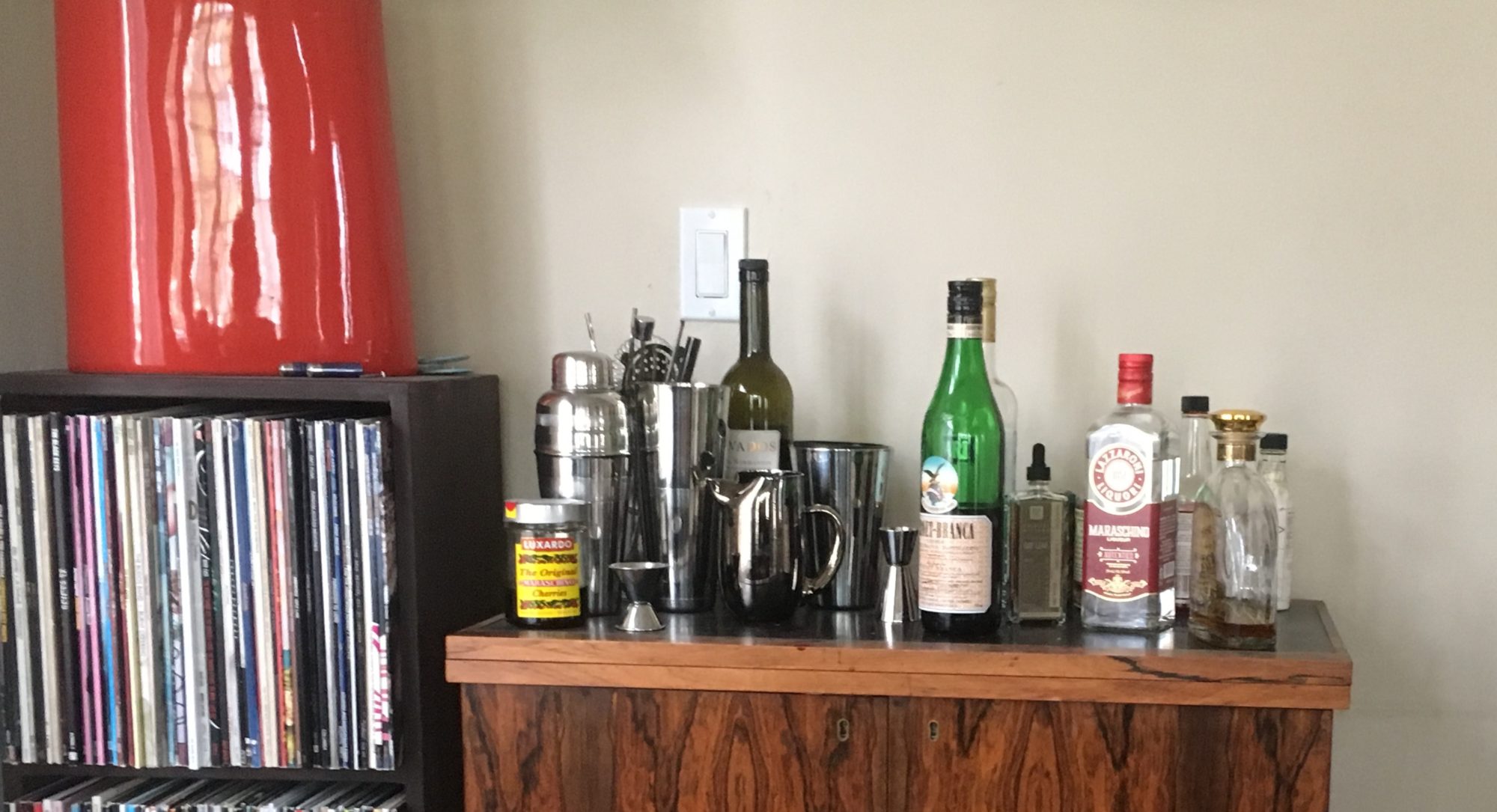
Very interesting! My mom always uses eye of round for roasts (to go with Yorkshire pudding, of course). I’ve tried over the years to replicate her very simple roast but never succeeded. Your rotisserie method seems like a good way to take care of such a lean cut. I also notice a good layer of fat across yours, which is hard to find. Did you keep it on for cooking?
Yeah, I didn’t trim a thing from the steak. That fat didn’t amount to much once it was done cooking, can’t imagine working without it. Of course, this is what a typical rotisserie candidate looks like in my kitchen:
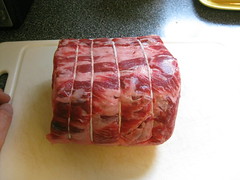
Fat is flavor, as they say!